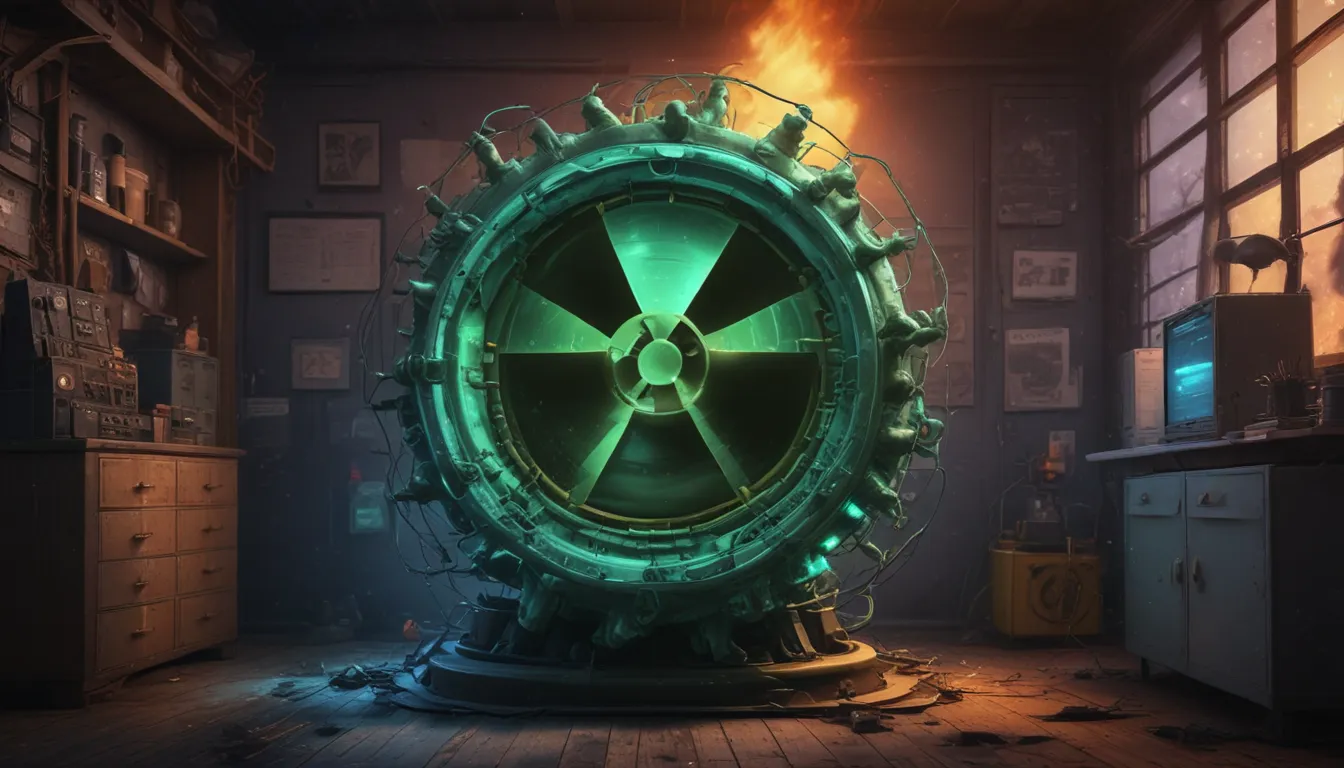A Note About Images: The images used in our articles are for illustration purposes only and may not exactly match the content. They are meant to engage readers, but the text should be relied upon for accurate information.
Radioactive isotopes, also known as radionuclides, are enigmatic atoms with unstable nuclei that emit radiation as they decay over time. These unique entities have transformed the fields of chemistry, medicine, and environmental science, shaping our understanding of the world around us. Join us on a captivating journey through the realm of radioactive isotopes as we explore their diverse applications and intriguing properties.
The Essence of Radioactive Isotopes
At the core of radioactive isotopes lies their unstable nuclei, which undergo spontaneous decay due to an imbalance in the number of protons and neutrons. With over 3,000 known types, these isotopes span a wide array of elements in the periodic table, each offering unique properties and applications in various scientific disciplines.
Unraveling the Mysteries of Radioactive Isotopes
-
Diverse Applications: Radioactive isotopes are indispensable in fields such as medical diagnostics, cancer treatment, environmental monitoring, and geological dating. They serve as essential tools in unraveling mysteries of the past and enhancing our health and well-being.
-
Carbon-14 Dating: The widely recognized Carbon-14 isotope, with a half-life of approximately 5,730 years, revolutionizes radiocarbon dating by determining the age of ancient artifacts with remarkable accuracy.
-
Artificial Generation: Scientists can create specific radioactive isotopes through nuclear reactions in controlled environments using advanced technologies like particle accelerators and reactors.
The Impact of Radioactive Isotopes in Various Spheres
-
Medical Advancements: Radioactive isotopes like technetium-99m play a pivotal role in diagnostic imaging techniques such as SPECT and PET scans, aiding in the early detection and monitoring of diseases.
-
Cancer Therapy: Utilizing isotopes like iodine-131 and palladium-103, radiation therapy targets cancer cells with precision, offering an effective treatment modality for combating cancer.
-
Environmental Insights: Isotopes like cesium-137 help scientists track pollutants and understand the impact of human activities on the environment, contributing to environmental conservation efforts.
-
Nuclear Power Generation: Essential isotopes like Uranium-235 undergo fission in nuclear reactors, generating vast amounts of energy harnessed for electricity production, powering homes and industries.
Safeguarding Against Hazards and Leveraging Benefits
-
Safety Precautions: Some radioactive isotopes emit harmful radiation, necessitating stringent safety measures in handling and disposing of materials to mitigate health risks.
-
Medical Sterilization: Isotopes like Cobalt-60 find utility in sterilizing medical equipment, ensuring the safety and efficacy of instruments in healthcare settings.
-
Agricultural Innovations: Isotopes such as phosphorus-32 aid in studying plant metabolism and nutrient uptake, contributing to advancements in crop production and agricultural practices.
Emerging Frontiers and Future Prospects
The evolution of technology continues to expand the horizon of radioactive isotopes, promising groundbreaking discoveries and advancements in diverse scientific realms. By examining isotopic fingerprints to trace contamination sources and unraveling the mysteries of the universe, radioactive isotopes pave the way for a future filled with exciting possibilities.
Illuminating the Path Forward
Embracing the enigmatic world of radioactive isotopes unlocks a realm of knowledge and innovation that transcends boundaries, offering valuable insights into the intricate workings of our universe. As we embark on this journey of discovery and exploration, the significance of radioactive isotopes in shaping our world becomes increasingly apparent.
Frequently Asked Questions
-
What are radioactive isotopes?
Radioactive isotopes are unstable forms of atoms that undergo decay, emitting radiation in the process. -
How are radioactive isotopes used in medicine?
Radioactive isotopes are instrumental in medical imaging techniques, such as PET scans, for diagnosing and monitoring diseases. -
Are radioactive isotopes dangerous?
While radioactive isotopes can pose hazards if mishandled, they are utilized safely in controlled settings for various applications. -
What is radiometric dating?
Radiometric dating is a methodology that utilizes the decay of radioactive isotopes to determine the age of rocks, fossils, and archaeological artifacts. -
How do researchers track radioactive isotopes in the environment?
Scientists employ specialized instruments to detect and measure the presence of radioactive isotopes in air, water, soil, and biological samples.
As we navigate the enthralling world of radioactive isotopes, let us embrace the knowledge and possibilities they offer, enriching our understanding of the world and propelling us towards new frontiers of discovery and innovation.






